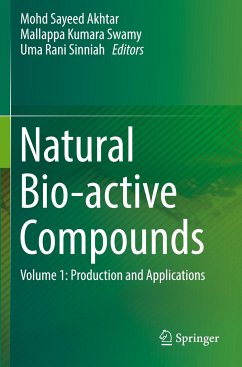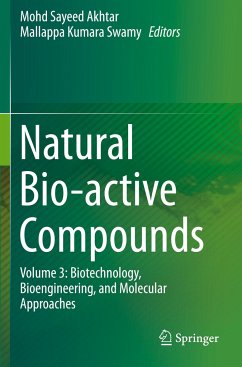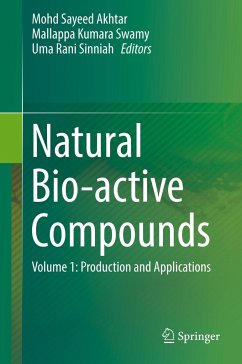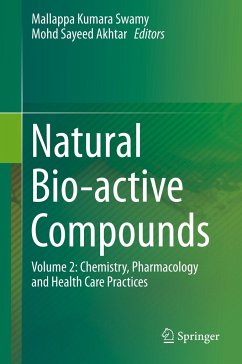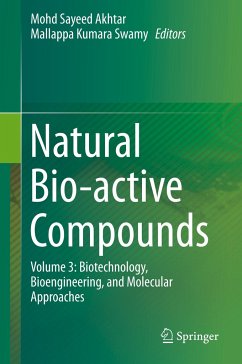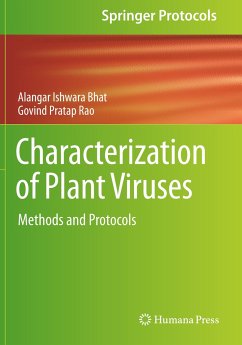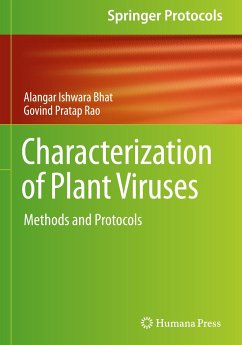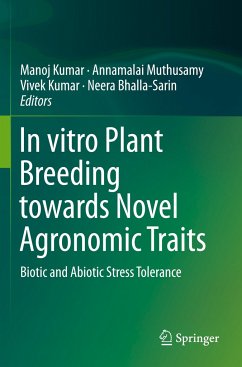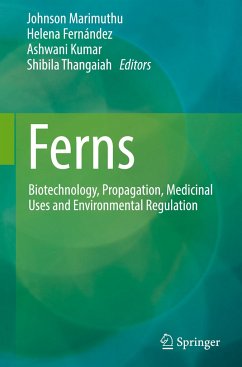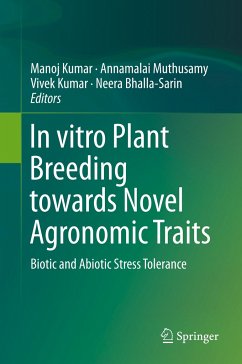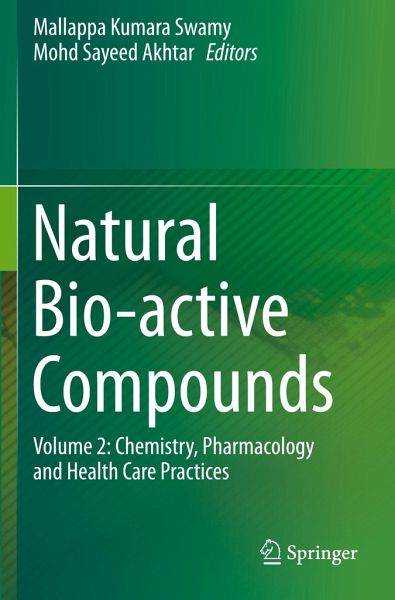
Natural Bio-active Compounds
Volume 2: Chemistry, Pharmacology and Health Care Practices
Herausgegeben: Swamy, Mallappa Kumara; Akhtar, Mohd Sayeed
Versandkostenfrei!
Versandfertig in 6-10 Tagen
113,99 €
inkl. MwSt.

PAYBACK Punkte
57 °P sammeln!
Nature has consistently provided human beings with bioactive compounds that can be used directly as drugs or indirectly as drug leads. Some of the major classes of natural bioactive compounds include phenolics, alkaloids, tannins, saponins, lignin, glycosides, terpenoids, and many more. They possess a broad range of biological activities and are primarily useful in the treatment of various health issues. At the same time, the search for new and novel drugs is never-ending and, despite major advances in synthetic chemistry, nature remains an essential resource for drug discovery.Therefore, more...
Nature has consistently provided human beings with bioactive compounds that can be used directly as drugs or indirectly as drug leads. Some of the major classes of natural bioactive compounds include phenolics, alkaloids, tannins, saponins, lignin, glycosides, terpenoids, and many more. They possess a broad range of biological activities and are primarily useful in the treatment of various health issues. At the same time, the search for new and novel drugs is never-ending and, despite major advances in synthetic chemistry, nature remains an essential resource for drug discovery.
Therefore, more and more researchers are interested in understanding the chemistry, clinical pharmacology, and beneficial effects of bioactive compounds in connection with solving human health problems. This book presents a wealth of information on natural metabolites that have been or are currently being used as drugs or leads for the discovery of new drugs. In addition, it highlights the importance of natural products against various human diseases, and their applications in the drug, nutraceuticals, cosmetics and herbal industries. Accordingly, the book offers a valuable resource for all students, educators, and healthcare experts involved in natural product research, phytochemistry, and pharmacological research.
Therefore, more and more researchers are interested in understanding the chemistry, clinical pharmacology, and beneficial effects of bioactive compounds in connection with solving human health problems. This book presents a wealth of information on natural metabolites that have been or are currently being used as drugs or leads for the discovery of new drugs. In addition, it highlights the importance of natural products against various human diseases, and their applications in the drug, nutraceuticals, cosmetics and herbal industries. Accordingly, the book offers a valuable resource for all students, educators, and healthcare experts involved in natural product research, phytochemistry, and pharmacological research.





